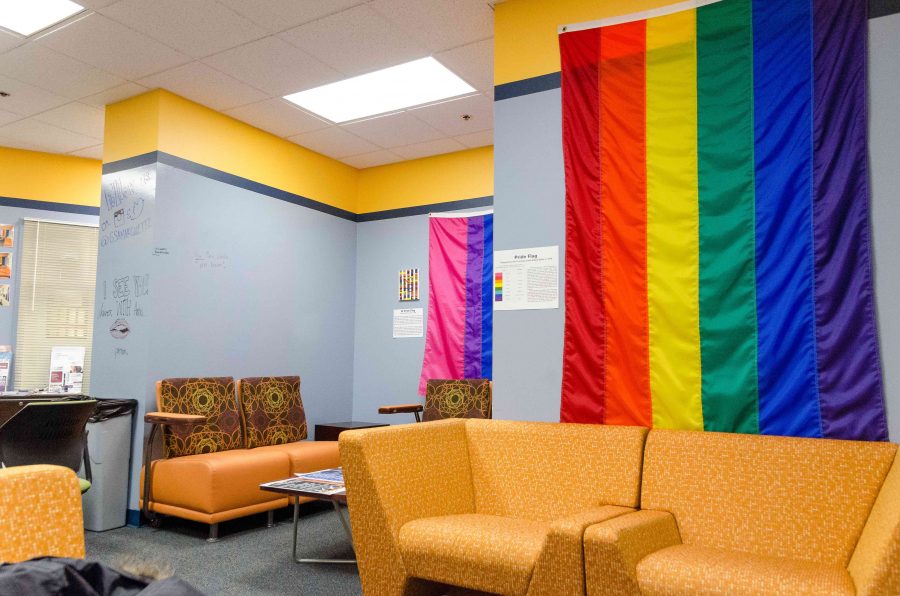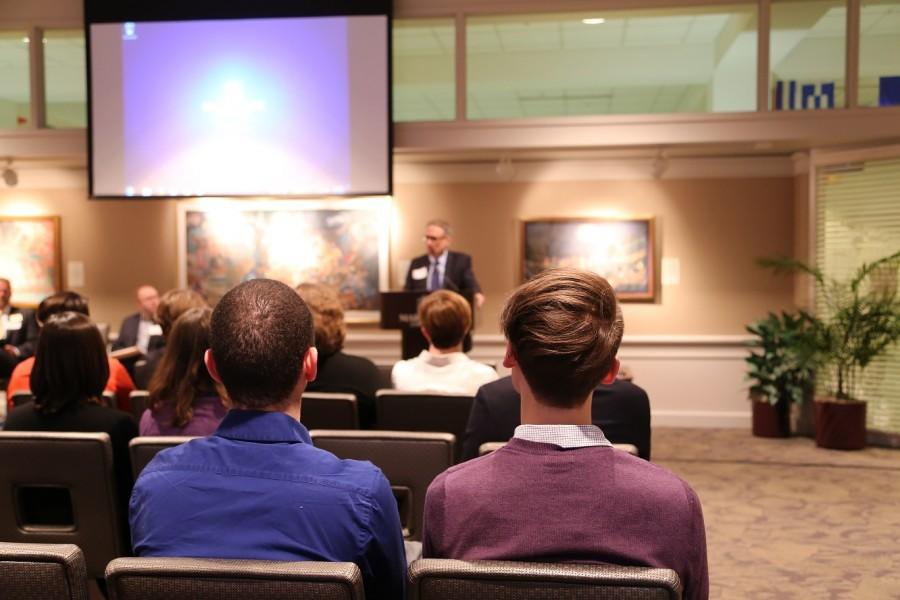The LGBTQ Resource Center announced plans to hold a Pride Prom in the spring of 2018 for members of the LGBTQ community and the general public. If the plan goes through, Marquette will be the first Catholic university to do so.
However, the event has not been met with excitement from the entire community. The prom isn’t scheduled to happen until April 14, 2018, but a petition is circulating the internet, urging President Lovell to shut the dance down.
The petition was started by TFP Student Action and can be found on their website. TFP, which stands for Tradition, Family, Property, is a group that works with students and parents on college campuses across the country to defend traditional moral values and restore the values of Christian civilization, according to their website.
Director of TFP Student Action, John Ritchie, cites the planned location of the Pride Prom as one of his major objections to the event.
“To promote ‘pride’ for any sinful lifestyle cuts at the root of Catholic education,” Ritchie said. “What’s worse is the disrespect shown for the house of God, because the ‘Pride Prom’ is scheduled to happen in the same building that houses the Chapel of the Holy Family, where the Holy Eucharist is kept and where Mass is celebrated.”
The petition, shared via email and other social media sites, currently has just over 18,000 signatures from Marquette affiliates and strangers alike. One signature on that list is from Bruce Murray, a former Marquette professor.
Murray taught reading education and was the director of the Harman Literacy and Learning Center for the 1995-’96 academic year. Now the coordinator of reading education in the department of curriculum and teaching at Auburn University, he voiced his concern on Facebook about the Pride Prom when he received news via email from TFP Student Action a few weeks ago.
“Our Catholic faith rules out promoting intrinsically disordered acts, actions that alienate us from God and weaken or destroy the family structure,” Murray said. “Celebrating homosexual relations and denigrating God’s design is not something Marquette should sponsor or promote … It is a rejection of the mission of a Catholic university.”
Marquette administration, however, interprets the significance of a Pride Prom differently. University spokesperson Brian Dorrington cites the Catechism and the mission statement as the very reasons as to why a Pride Prom is in accordance with Marquette’s responsibility as a Jesuit university.
“Marquette strives at every level to foster a culture of inclusion, which means we are a community that respects, welcomes and promotes a sense of belonging,” Dorrington said. “We support our LGBT community in ways that are both pastoral and educational, recognizing that they have an important voice that we must include in our conversations.”
Enrique Tejada III, the coordinator for the LGBTQ Resource Center, said they and the rest of the resource center volunteers think Pride Prom is a natural progression from the Pride Dance hosted last year.
“The idea of shifting it from what it was is to make it a family-friendly, all ages, public event,” Tejada said. “We’re hoping this event gives the larger community, on and off campus, a space that can be utilized for healing, support and joyful fun.”
While the event has only a one word difference in title from last year, the implications of a dance and a prom are slightly different. Despite those implications, Tejada said the community has met the plans for the Pride Prom with equal excitement as in years past.
Linda Pozen, a junior in the College of Arts & Sciences who also helps with volunteer outreach for the resource center, agrees that the general reaction from the student body has been positive.
“I’m personally excited for it, and I know a lot of other students who are excited for it. I think it’s going to be well-received by the students of Marquette as well as the greater community,” Pozen said. “I’m hoping to see a lot of families and community members there.”
The employees in the resource center recognize the negative effect that the petition might have on allies and students who identify as LGBTQ. They are not discouraged, and they urge others to not be discouraged either.
“There are always people who will stand on the side and say ‘no,’ but we know the university stands behind us,” Pozen said.
“I definitely don’t want to focus on (the petition). This will not affect anything that we do. We are always working to create safe spaces for the students, who we put first and foremost,” Tejada said.
Looking past the backlash, Tejada remains focused on the goal of the LGBTQ Resource Center from when it first opened its doors.
“We recognize that our students have identities. Our hope as a center is to be a place of compassion, care and support for students,” they said. “(The resource center) is an intersectional place. This isn’t just a race issue or a faith issue. I want to create a space where we can continue to change hearts and minds.”


